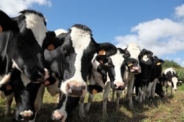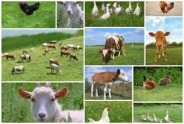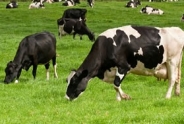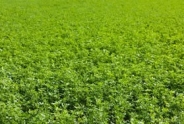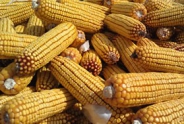Early Wheat Management and Scouting
Mike Stanyard, Team Leader and Field Crops & IPM Specialist
Northwest New York Dairy, Livestock & Field Crops
May 1, 2013
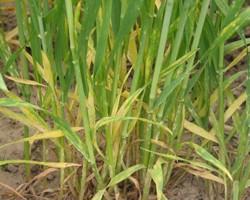
I have been out looking at plenty of fields in early April and counting tillers. Most of the fields I checked had between 1350 and 1800 tillers/yd. There are plenty of healthy plants and tillers out there. My recommendation on these fields was to hold off on applying N at green-up and apply it all at jointing. I know it is hard to wait if the current field conditions are perfect for spraying!
This later N application timing should coincide with stem elongation which means nitrogen is going towards increasing the number of seeds per head and seed size, not additional tillers. Wheat takes off quickly at this stage so be diligent and prepared to spray.
Weeds. We continue to encourage the earliest planted fields to be sprayed for winter annual weeds (purple deadnettle, chickweed, chamomile) in late fall. You never know what the weather will be like in the spring and timely weed control can be tricky. Right now the earliest planted fields should have been sprayed for weeds already. Some of the later planted fields may still need to be sprayed. We are still encouraging that you do not mix your herbicide and nitrogen applications and spray separately. The leaf burning can cost use up to 10 bushels and could get worse as temperatures increase.
Fungicides. We have seen that fungicide applications in wheat can really pay off. Our recommendations have been that if you are going to put one fungicide application on, it should be at flowering (stage 10.5). This is mainly to protect against head scab and protect the flag leaf. However, that does not mean we should ignore the plants in the early growth stages. Powdery mildew and leaf rust can move in during the vegetative stages and result in yield losses. These leaf diseases can be more prevalent with thicker wheat stands. Weather conditions also can play a role. Wet, cool conditions are more conducive to disease development. If you applied higher N rates, fungicides are even more important to keep the wheat healthy to prevent lodging.<br>
Insect Scouting. Cereal leaf beetles will be emerging as the weather warms and will be hungry and looking for a host to lay its eggs. Its first choice is usually oats but there may not be enough acres emerged yet and wheat would be its second choice. Economic threshold for insecticide treatment is three or more eggs and larvae per stem before the boot stage. Threshold decreases to one larva per stem after flag leaf emergence.
Most wheat producers have not forgotten about the "Armyworm Invasion" of last year. Armyworms do not overwinter in NY so there no way to determine if they will have a repeat performance. We will be watching for adult flights earlier this year and combing through the lower wheat canopy for small larvae. Remember, armyworms are nocturnal feeders so scouting with a flashlight at night could reveal this daytime hider.
Wheat Growth Stages (pdf; 161KB)
Upcoming Events
Cornell Cow Convos Podcast- Episode 8 Release
April 25, 2024
Cornell Cow Convos-Episode 8
Western NY Value-Added Dairy Discussion Group: Jess May- Farm Credit East Webinar
May 2, 2024 : Value-Added Dairy Discussion Group Webinar: Jess May- Farm Credit East
Register here:
https://cornell.zoom.us/webina...
Western NY Value-Added Dairy Discussion Group: Eden Valley Creamery
May 3, 2024
South Dayton, NY
Registration for this discussion group is required and limited.
Announcements
Follow us on Instagram
See photos and reels of our most recent events and programs!Join us on Facebook!
Follow us on Facebook to get up to date posts about events, workshops and everything NWNY!Add us on LinkedIn!
Connect with us on LinkedIn to get more information about upcoming workshops and programs!

